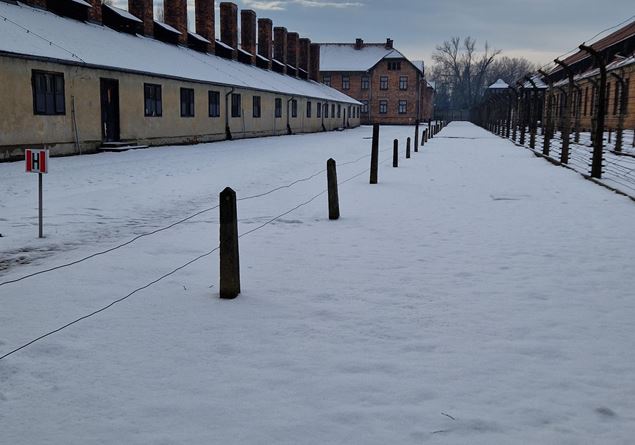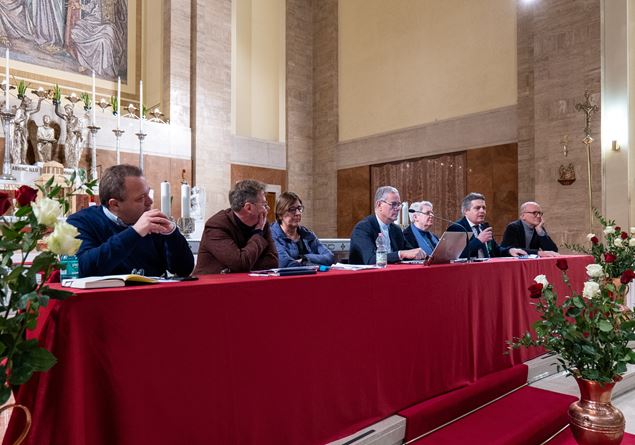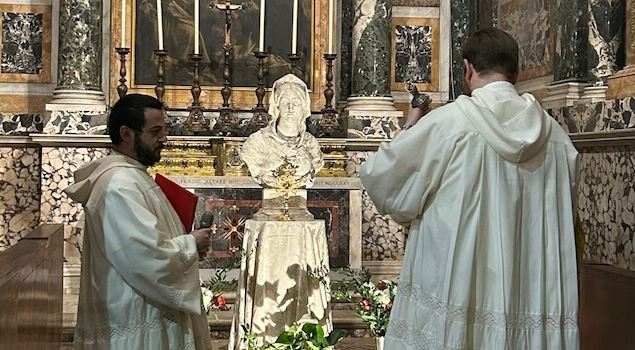
Piero Calamandrei speech on the Constitution Milan, 26 January 1955
Article 34 of the Constitution says: “The capable and deserving, even if without means, have the right to reach the highest degrees of studies”. Eh! What if they don’t have the means? Then in our Constitution there is an article that is the most important of the whole Constitution, the most demanding for us who are to decline, but above all for you young people who have the future in front of you. He says thus: «It is the task of the Republic to remove the obstacles of economic and social order, that, effectively limiting the freedom and equality of citizens, prevent the full development of the human person and the actual participation of all workers in the organization Politics, economic and social and social “. It is the task of removing the obstacles that prevent the full development of the human person: therefore give work to everyone, give the right salary to everyone, give school to everyone, give all men dignity as a man. Only when this is achieved, can it really be said that the formula contained in the first article – “Italy is a democratic republic founded at work” – will correspond to reality.
Because until there is no possibility for every man to work and study and deal with confidently from his work the means to live as a man, not only our republic can not be called based on work, but you will not be able to Calling even democratic because a democracy in which there is no de facto equality, in which there is only a legal equality, it is a purely formal democracy, it is not a democracy in which all citizens really are able to contribute to the life of society, to bring their best contribution, in which all the spiritual forces of all citizens are made to contribute to this path, to this continuous progress of the whole society. And then you understand from this that our Constitution is in part a reality, but only in part it is a reality. In part it is still a program, an ideal, a hope, a commitment of a job to be done. How much work you have to do! How much work is in front of you!
It has been rightly said that the constitutions are controversy, that in the articles of the Constitutions there is always, even if disguised by the cold formulation of the provisions, a controversy. This controversy is usually a controversy against the past, against the recent past, against the regime fallen from which the new regime came out. If you read the part of the Constitution that refers to civil and political relations, to the rights of freedom, you will continually feel the controversy against what was the situation before the Republic, when all these freedoms, which today are listed and reaffirmed solemnly, were systematically disconnected. Therefore, controversy in the part of human and citizen rights against the past. But there is a part of our Constitution which is a controversy against the present, against the company present. Because when Article 3 tells you: “It is the task of the Republic to remove the economic and social obstacles that prevent the full development of the human person”, recognizes with this that these obstacles are in fact today and that we must remove them. It gives a judgment, the Constitution, a polemical judgment, a negative judgment against the current social system 2, which must be changed through this tool of legality, of gradual transformation, which the Constitution has made available to Italian citizens.
But it is not a immobile constitution that has set a staple, it is a constitution that opens the ways towards the future. I do not want to say revolutionary, because revolution in common language intends to violently subvert, but it is a renewal, progressive constitution, which aims to transform this society in which it can happen that, even when there are, legal and political freedoms They are made useless of economic inequalities and impossibility for many citizens to be people and to realize that within them there is a spiritual flame which, if it were developed in a regime of economic equalization, could also contribute to the progress of society. So, controversy against the present in which we live and commitment to do what is in us to transform this present situation. However, you see, the Constitution is not a car that once put in motion goes on for itself.
The Constitution is a piece of paper, I let it fall and does not move. Because you move you have to get back into the fuel every day, you have to put our commitment, the spirit, the desire to keep these promises, one’s responsibility. For this reason, one of the offenses that are made to the Constitution is indifference to politics, indifferentism, which is – not here, fortunately, in this audience, but often in large categories of young people – a little a young disease, indifferentism. “Politics is a bad thing”, “that I care about politics”: when I hear this speech, I always come to mind that old stories, that some of you will know, of those two emigrants, two peasants, who crossed the ‘Ocean on a shaky steamship. One of these farmers slept in the hold and the other was on the bridge and realized that there was a great storm with very high waves and the steamship swing. So this impaurized farmer asks a sailor: “But are we in danger?”, And this says: “If this sea continues, in half an hour the vessel sinks”. Then he runs in the hold to wake up his partner and says: “Beppe, Beppe, Beppe, if this sea continues, in half an hour the vessel sinks!”. That says: “That I care, it’s not mine!” This is the indifferentism to politics. It’s so beautiful, it’s so comfortable: freedom is there. We live in freedom, there is other things to be interested in politics.
And I know too! The world is so beautiful, there are many beautiful things to see, to enjoy, as well as dealing with politics. Politics is not a pleasant thing. But freedom is like air: one realizes what is worth when he begins to fail, when he feels that sense of asphyxiation that the men of my generation have heard for twenty years, and that I wish you, young people, of Never feel, and I wish you never find you to feel this sense of anguish, as I wish you to be able to create the conditions for this sense of anguish you do not have to try it, remembering every day that on freedom you have to supervise, watch over , by giving one’s contribution to political life.
The Constitution, you see, is the statement written in these articles, which from a literary point of view are not beautiful, but it is the solemn affirmation of social solidarity, human solidarity, common fate, which if it goes deeply, goes to Fund for everyone this vessel. It is the card of one’s freedomthe paper for each of us of our dignity of man. I remember the first elections after the fall of fascism, on 6 July (June 2, editor’s note) 1946: this people who had not enjoyed civil and political freedom for 25 years, the first time he went to vote after a period of horrors – Chaos, civil war, struggles, wars, fires. I remember – I was in Florence, the same happened here – these rows of people governed in front of the sections, disciplined and happy because they had the feeling of having found their dignity, giving the vote, this to bring their opinion to help create This opinion of the community, this being the masters of us, of our country, of our country, of our homeland, of our land, to have our fate, of the fate of our country.
So you young people at the Constitution you have to give your spirit, your youth, make it live, feel it as your thing, to put in the civic sense, the civic consciousness, realize – 3 this is one of the joys of life – realize that everyone Of us in the world is not alone, that we are more, that we are part of a whole, within the limits of Italy and in the world. Now, you see – I have little else to tell you -, in this Constitution, of which you will hear comment in the next conferences, there is in our whole history, all our past. All our pains, our disasters, our glories are all overlooked in these articles. And to know, behind these articles we feel distant voices. When I read, in article 2, “the fulfillment of mandatory duties of political, economic and social solidarity”, or when I read, in article 11, “Italy repudiates the war as an instrument of offense to the freedom of other peoples », The Italian homeland in the midst of other homelands, I say: but this is Mazzini, this is Mazzini’s voice; Or when I read, in article 8, “all religious confessions are equally free before the law”, but this is Cavour; Or when I read, in article 5, “the Republic one and indivisible recognizes and promotes local autonomies”, but this is Cattaneo; or when, in article 52, I read, regarding the armed forces, “the system of the armed forces informs the democratic spirit of the Republic”, army of people, but this is Garibaldi; And when I read, in article 27, “the death penalty is not allowed”, but this, or Milanese students, is Beccaria. Great distant voices, big distant names. But there are also humble names, recent voices.
How much blood and how much pain to get to this Constitution! Behind every article of this constitution, or young, you have to see young people like you, who fell by fighting, shot, hanged, tortured, starving in concentration camps, who died in Russia, in Africa, who died on the streets of Milan, On the streets of Florence, who gave life so that freedom and justice could be written on this card. So when I told you that this is a dead card, no, it is not a dead card, this is a testament, a testament of one hundred thousand deaths. If you want to go on pilgrimage to the place where our Constitution was born, go to the mountains where the partisans fell, in the prisons where they were imprisoned, in the fields where they were hanged. Wherever an Italian died to redeem freedom and dignity, go there, or young, with thought because our Constitution was born there “.









